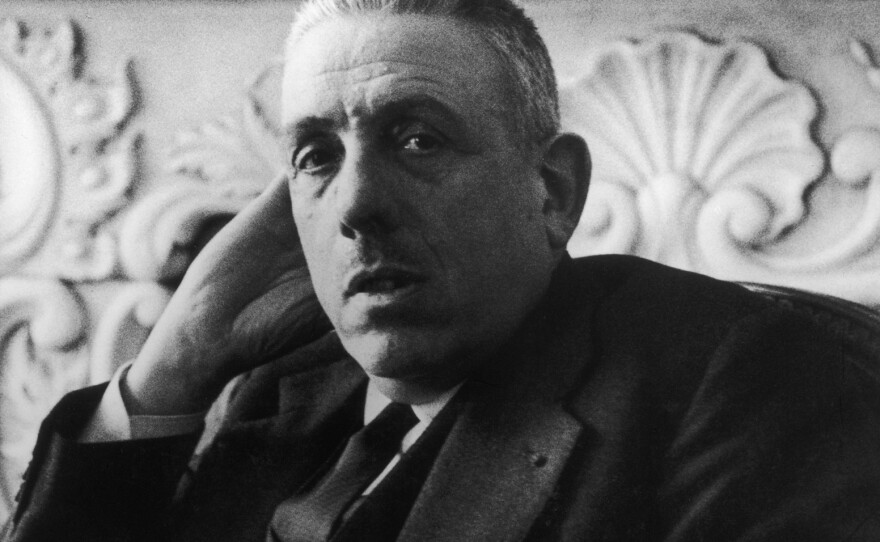"Where words fail, music speaks." So goes the adage from Hans Christian Andersen, the Danish spinner of fairy tales. A new album takes that idea literally, sharing through music what gay composers once repressed in public because they lived in societies that wouldn't tolerate deviations from heterosexual norms.
"Music becomes this space of confession, of refuge, where the words are very pure," French pianist David Kadouch told Morning Edition host Michel Martin, speaking from his home in Paris.
His album, Amours Interdites (Forbidden Love), features works by late 19th and early 20th century composers ranging from Tchaikovsky to Poland's Karol Szymanowski and French singer-songwriter Charles Trenet, who died in 2001.
"It's a celebration of love, of people coming together, because the fight has been done," said Kadouch, who is openly gay. "Today, I'm able to say that this recording is about forbidden stories of their times. And they are not forbidden anymore."

The album also includes premiere recordings of works by Wanda Landowska, best known for having revived the popularity of the harpsichord a century ago. Venezuelan-born Reynaldo Hahn, once a lover to In Search of Lost Time's Marcel Proust, makes several appearances, as does a witty and melodic Francis Poulenc.
Kadouch has championed in recordings and performances the music of women composers, who "composed in spite of everything," from child care duties and societal expectations to using a man's name to publish their scores. Their destinies, he notes, "did not deserve to be hidden."
Ethel Smyth, for example, fell in love with her teacher's wife while studying music in Leipzig. Smyth dedicated the tormented Aus der Jugendzeit!! (From Youth!!) to her love, Elisabeth von Herzogenberg, filling it with a rhythmic phrase that flows from one hand to the next. The bass contains a musical transcription of the initials E.H. as an open fifth.
Smyth, a suffragist, faced many challenges — her father opposed her musical career, and her love for women was condemned by society. Legend has it that she conducted her anthem "The March of The Women" through the bars of her London prison cell using a toothbrush, as other suffragists sang in the prison yard. She had been jailed with some 100 others for throwing stones at the homes of suffrage opponents.
Tchaikovsky, who was guilt-ridden over what he referred to as his "weaknesses," married a young music student to relieve social pressure. But he abandoned the marriage within weeks. His homosexuality is still a matter of debate in Russia, though it has been accepted elsewhere.
"When you read his letters, there's this immense suffering that leaves little to no doubt about how much he was suffering from his sexuality and from the fact that he had to hide it," Kadouch said. "The tragedy of his symphonies may be listened to differently when you know the struggle that he had with his identity."
Australian composer Percy Grainger's stormy transcription of Tchaikovsky's beloved Waltz of the Flowers from The Nutcracker ballet finds an erudite match under Kadouch's fingers.
"Yes, you'll dance, you'll think about the holiday season, but you could also think about one's identity and how it is all about fluidity, how life is a circle because you feel this waltz going on and going on, almost in a crazy way," he said.
The broadcast version of this story was produced by Barry Gordemer. The digital version was edited by Majd al-Waheidi.
Copyright 2025 NPR







